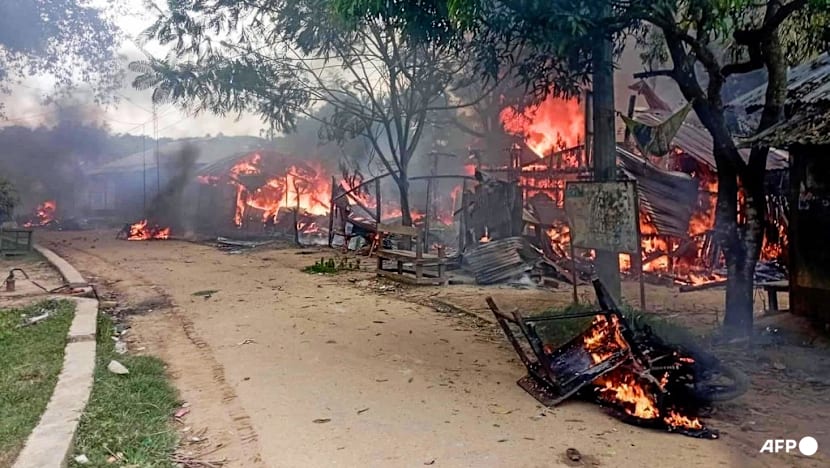Bangladesh blames foreign arms for deadly hill clashes

Smoke billows from a burning market area at Guimara in Khagrachari district on Sep 28, 2025, after it was set ablaze during a clash between Hill and Bengali residents over the alleged rape of a female student. (Photo: AFP)
DHAKA: Bangladesh's interior chief said on Monday (Sep 29) that weapons from "outside the country" were fuelling violence in a southeastern border region with India that has left three people dead.
Clashes erupted in the Chittagong Hill Tracts on Sunday, when security forces stopped protesters angry at the recent alleged rape of a woman, and three people were killed.
The army blamed rebels, while demonstrators accused troops of opening fire.
Bangladesh has been in political turmoil since student-led protests forced former prime minister Sheikh Hasina to flee to old ally India last year, turning relations between Dhaka and New Delhi icy.
Interior ministry chief Jahangir Alam Chowdhury alleged "arms are coming from outside the country", supplying weapons to "miscreants firing from the hilltops", without giving further details.
The region has long been a flashpoint between Indigenous communities and Bengali-speakers, with clashes breaking out over land and resources.
Protesters said they were angry over the alleged gang rape of an Indigenous woman on Sep 23.
"We had been demonstrating peacefully, restricted to rallies and road blockades," a student protester told AFP, describing Sunday's rally in Khagrachari district.
"The military fired shots, killing at least three of us and leaving a dozen injured," they said, who asked not to be named for fear of reprisals.
The army, however, denied responsibility.
Its publicity wing, the Inter-Services Public Relations (ISPR), accused the United People's Democratic Front (UPDF), a holdout rebel faction, of instigating the violence and firing hundreds of shots.
Rebels fought a decades-long insurgency for a tribal homeland before signing a 1997 peace accord, but the UPDF rejected the deal and continues to demand autonomy and a full withdrawal of military bases.
The resurgence of unrest poses a challenge for interim leader Muhammad Yunus, who is tasked with steering the nation of 170 million to elections in February - the first since a mass uprising toppled the government in 2024.












